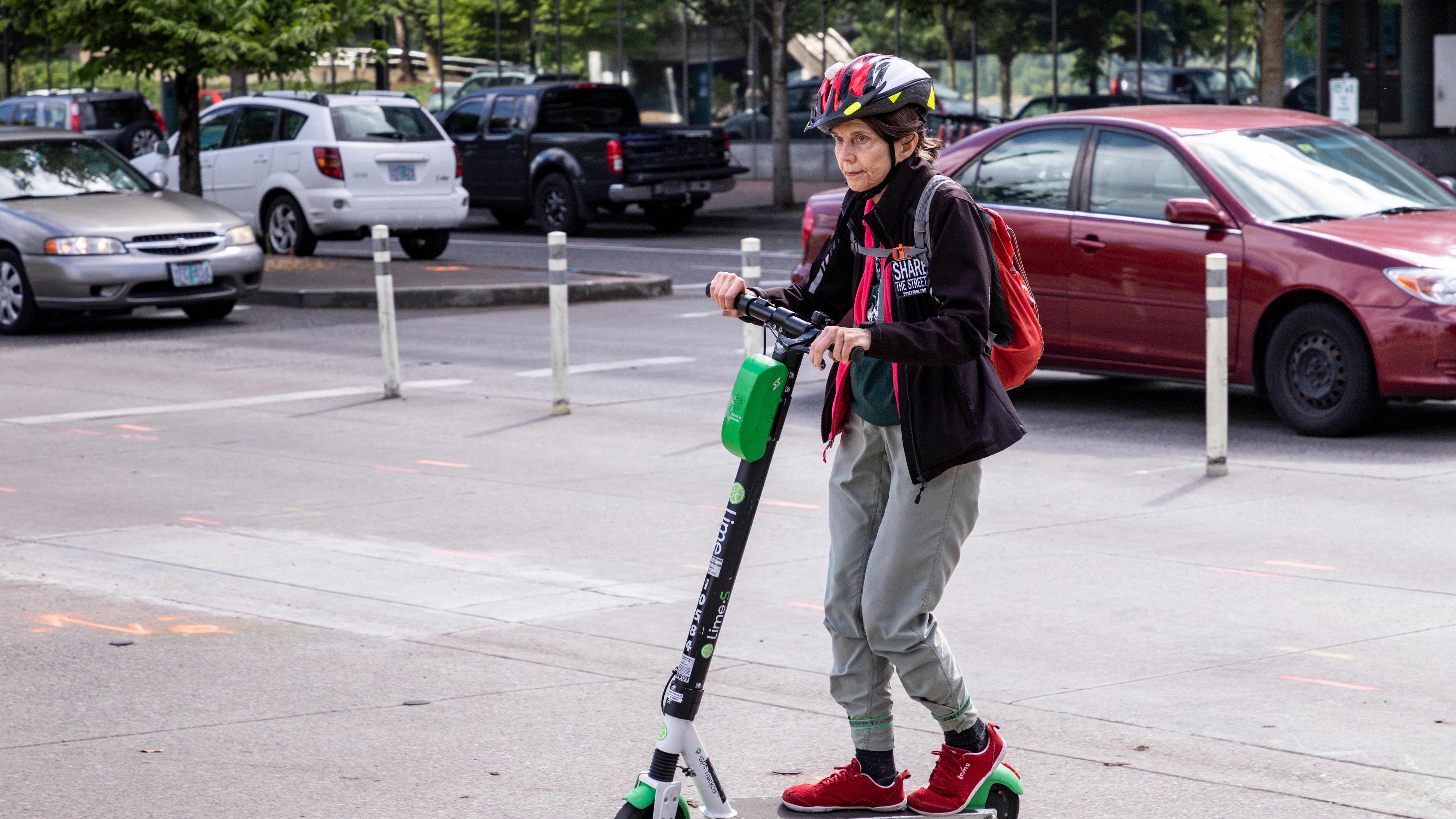E-scooters have made new enemies.
Portland/Save Our Sidewalks, a group of twelve Portland residents, announced its formation yesterday by issuing a list of demands to the Portland Bureau of Transportation—including that it enforce stricter sidewalk and parking rules, develop a complaint process, and find ways to receive community feedback before the city makes changes to the program.
The group plans to continue lobbying through social media posts, speaking at neighborhood meetings and writing directly to PBOT and public officials.
Portland/Save Our Sidewalk's complaints echo those lodged last year during the city's first pilot program: that e-scooter riders illegally ride on sidewalks and that riders don't wear helmets. The group questions whether PBOT has done enough to address Portlanders' concerns this time around.
Related: Meet the Portland Citizens Who Hate Scooters the Most
Bob Weinstein, one of Portland/Save Our Sidewalks' organizers, says "e-scooters and Portland sidewalks do not mix."
He says his frustrations started over a year ago, during the city's first pilot program, and that he tried to engage in dialogue with PBOT but got "very little response." Over the past year, he's sent 76 emails to the e-scooter companies and PBOT. He says he's received only a few vague responses, but none that directly addressed his concerns.
Weinstein says PBOT has failed to properly enforce rules about riding on sidewalks, and has been "disingenuous" by re-routing complaints by citizens to the e-scooter companies directly.
"If you look at the scooters, PBOT requires them to visibly have rules about requiring helmets, not riding on sidewalks, and not blocking sidewalks," Weinstein says. "[The rules] are visible when you have tweezers and a magnifying glass. They're absurdly small, and they're placed on the bottom of the stem."
E-scooters returned to Portland April 26. Dylan Rivera, PBOT's spokesman, says that as of June 14th, there are 1,975 permitted scooters on Portland streets. In order to receive a permit, scooter operators were required to describe how their service would assist historically underserved communities in finding jobs and accessing transportation, what technology the company would use to enforce safety regulations, and which languages it would offer instruction in.
Related: E-Scooter Company Lime Lowers the Cost of Rides For East Portlanders
Rivera says the agency is working on creating a new process that "gets complaints to the most appropriate organization that can do something about those complaints." PBOT's website notes that it will be implementing a new form, available online, to receive feedback sometime in July.
He says PBOT regulatory staff is also parsing through data to see if it can pinpoint where sidewalk riding happens most frequently and "focus efforts at those particular locations."
In May, he says PBOT issued 10 warnings and 46 fines to riders, and that "some e-scooter riders' accounts [were] suspended for repeated or egregious violations."
Weinstein says the city's efforts aren't enough (although he admits that e-scooters may help people who live on the fringes of town and don't have reliable transportation).
"[PBOT needs to] enforce its own rules, city law and the permit requirements and have serious disincentives, fines, whatever it takes," Weinstein says, "to keep people like me safe when we're walking on the sidewalks."

